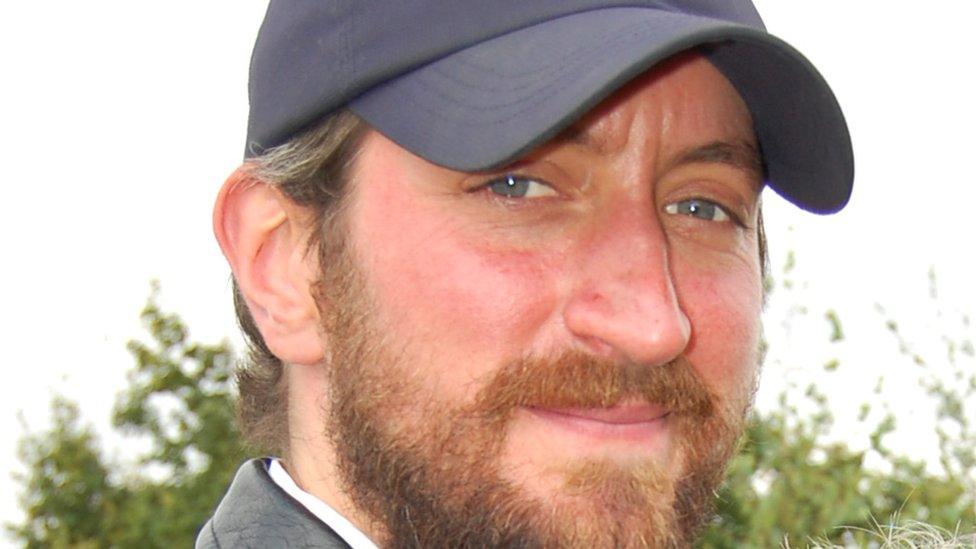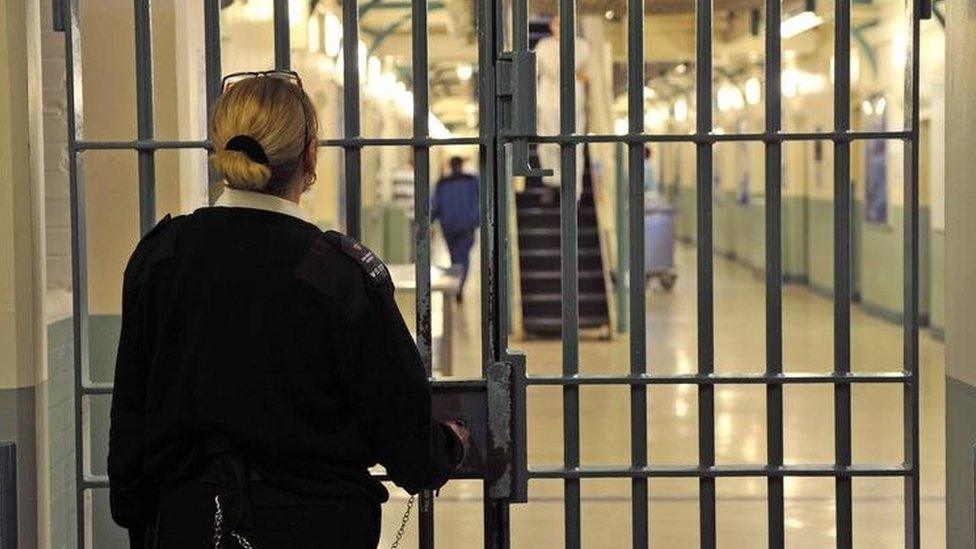Rise in deaths of offenders on probation since reforms
- Published

Caspar Capel's offending was linked with alcohol which gradually became a coping mechanism
The number of people dying while on probation in England and Wales has risen by almost a third in three years, analysis of official figures shows.
Campaign groups said there had been "institutional indifference" towards offenders released from custody.
A social worker said her job had become "a treadmill of bureaucracy".
The Ministry of Justice said a "great deal of caution was needed when trying to draw conclusions" from its figures.
The BBC's Shared Data Unit analysed Ministry of Justice data, external from 2015-16 to 2017-18.
It found:
Last year 966 deaths of offenders were recorded, compared to 752 in 2015-16
About one in three of those deaths were self-inflicted
In 2014-15, there were 558 deaths, but that was before 40,000 extra offenders were brought under supervision following government reforms

'I'd like to see offenders treated as whole people'

Caspar Capel was a "sweet but shy and anxious child", his mother said
Caspar Capel was 43 when he took his own life while a resident at an Approved Premises, formerly known as bail hostels.
He had borderline personality disorder and was troubled with depression and alcoholism for most of his adult life, contributing to many suicide attempts.
Weeks before his death, Mr Capel had spent several months on remand waiting for sentencing after exposing himself to a train conductor while drunk.
His mother Sue, said he had "no opportunities" for rehabilitation whilst on remand and kept a journal detailing how he wanted to kill himself.
She said: "I'd like to see offenders treated as whole people with a combination of problems which have led to the offending, and for the offence to be seen in the context of that person's history and mental health problems.
"Caspar wasn't offending because he wanted to gain anything from it, he wasn't aware he was offending, I'm sure. But he was very sad and angry - not caused by the drink, but exacerbated by it."
A review by the Prisons and Probation Ombudsman concluded there was nothing staff could have done to prevent Mr Capel's death, but acknowledged his complex history of mental health problems and alcohol misuse.

Private sector reforms
The arrangements for managing offenders were overhauled in 2014, with the probation service split in two.
A new state body, the National Probation Service (NPS), which has eight divisions, was set up to supervise high-risk offenders, with 21 privately-run Community Rehabilitation Companies (CRCs) supervising low and medium-risk offenders.
In March, the chief inspector of probation said the new system was "irredeemably flawed".
Frances Crook, the chief executive of the Howard League for Penal Reform, said homelessness, cuts to the voluntary sector and the spread of drugs such as Spice may have contributed to the rise in deaths.
She added: "Whereas before we had a successful publicly-run probation service with qualified and trained staff who saw their mission as befriending and turning lives around, we now have a fragmented service with a tick-box culture where some people have not even met face-to-face."
One offender manager, who spoke on condition of anonymity, said: "When you lose a service user it has a massive emotional impact on you.
"Officers, when they know someone is quite vulnerable, will go above and beyond to try and mitigate some of that risk, but then there's frustration felt when services are in a similar boat to us and can't commit the time some of these service users need."
Scotland and Northern Ireland
In Scotland, the work of the probation service is devolved to local authorities' social work departments, which are not required to record a cause of death for offenders under their care.
Figures for 27 out of 32 councils that responded to a BBC Freedom of Information request, show there were 556 recorded deaths across Scottish councils since 2014-15.
A Scottish Government spokesman said: "The death of any individual, no matter what the circumstances, while on release under supervision or licence, is regrettable, and our sympathies go to their family and friends."
Similar records from the Probation Board for Northern Ireland began in November 2016 and show a rise in deaths from 14 to 21 since then.
The Ministry of Justice said it was investing £22m to support offenders upon release.
A spokesman said: "Our probation reforms were a positive change for public safety, extending supervision and support to approximately 40,000 extra offenders each year - nearly 20% more than in 2014.
"This significant increase in volume, along with the rising age of offenders and improved recording practices, means a great deal of caution is needed when trying to draw conclusions from this data."
A programme to improve access to health services for vulnerable offenders with mental health, alcohol and substance abuse issues has also been launched.

The MoJ has invested £22 million so offenders under supervision have equal access to services
Dr Jake Phillips, senior criminology lecturer at Sheffield Hallam University, said national records of deaths under probation had improved since he first began researching the subject nearly a decade ago.
He said: "There's a fairly strong argument for saying we know a lot about why people kill themselves in prison, for example, because there's been learning taking place for the last 20 years or so, from a range of angles. Under probation supervision, we just don't know that."
Rebecca Roberts, head of policy at Inquest, said: "There's been complete institutional indifference towards the lives and deaths of people following release from custody and a total lack of visibility and investigation.
"Deaths have been rising year after year and we need more scrutiny on why this is, and what can be done to prevent these deaths in future."

More about this story
The Shared Data Unit makes data journalism available to news organisations across the media industry, as part of a partnership between the BBC and the News Media Association. This piece of content was produced by a local newspaper journalist working alongside BBC staff.
For more information on methodology, click here, external. For the full dataset, click here, external. Read more about the Local News Partnerships here.
- Published28 March 2019

- Published1 March 2019
